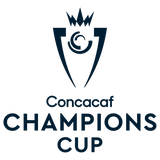
A Story Of Cheating, Revenge & Resiliency
Martin Rogers
FOX Sports columnist
A significant slice of American soccer history could be created this week but we will get to that later - much later - because first of all we get to talk about the heartwarming, festive, feel-good topic of … revenge.
Admittedly, it is not the most charitable subject for the start of holiday week but payback in sports, when it is executed perfectly and deservedly, is just as delicious as warm, sugary, Christmas cocoa.
On Saturday, we saw an absolute revenge masterclass, the blueprint by which all such future triumphant acts should be judged. It was enough to simultaneously send Twitter berserk while etching an instant smile onto the face of even those with no vested interest in its outcome.
And it all happened because Guillermo Ochoa cheated.
Despite his team, Mexico’s Club America, leading Major League Soccer’s LAFC 1-0 in the semifinal of the CONCACAF Champions League, goalkeeper Ochoa decided that it wasn’t enough.
Just before halftime, Ochoa left his goal to sprint over to LAFC’s Eduard Atuesta, who was on the turf having just been denied a marginal penalty appeal. What happened next is best described by simply watching the video of the FS2 coverage, but to cut a sneaky story short, Ochoa checked to see if the assistant referee was watching, repositioned himself to obscure the view, then theatrically fell to the turf as Atuesta rose to his feet.
Fooled by Ochoa acting as if he’d caught The Undertaker on a bad day, the referee gave Atuesta a red card, at which point Club America was on a fast track to victory. Or so it seemed.
Now let’s take a little closer look at revenge, which starts to be desired in sports when players and fans feel cheated by circumstance. Immediately, the victims start wishing for retribution on whoever and whatever caused their outrage.
Occasionally, they get an opportunity to exact aforementioned revenge and, even more infrequently, they actually complete the task and revel in it forever more.
The reason why LAFC’s revenge was absolutely seamless is because it had everything.
First of all, it was immediate. The MLS team, led by former United States head coach Bob Bradley, didn’t have to wait for another chance on another day in another season. It got to turn the tables right away, defying the man disadvantage to surge back in the second half, win 3-1, and book a spot in Tuesday’s final (10 p.m. ET on FS2).
The reaction was spectacular. After the teams scuffled following the red card, Carlos Vela, Ochoa’s former national team colleague, scored twice to put LAFC ahead within two minutes of the second half beginning. A late penalty sealed the deal, meaning LAFC will meet another Mexican team, Tigres, at Orlando’s Exploria Stadium, with the trophy at stake.
The best part is that the revenge related directly to the underhanded tactics employed by Ochoa were intended to help his own team, but insted served only to fire up LAFC and provide the catalyst for a remarkable comeback.
"LAFC rightfully felt aggrieved by the ridiculous call but I don’t think they felt surprised – it was classic CONCACAF gamesmanship," FOX Sports analyst and former national team captain Alexi Lalas told me. "What was impressive was their mature response. Sometimes a red card can motivate and focus a team. It focused them on being more efficient, ruthless and direct."
Bradley, who was unfairly criticized at times during his USA reign and whose legacy now looks distinctly shinier after the doomed Jurgen Klinsmann era, was bombarded by text messages from friends about the Ochoa incident and was most proud of his players’ response.
"The attempt to use that as a way of trying to get the edge and the win, you’ve got to be smart enough," Bradley said. "I think our guys handled things well. You remember these nights, what it was like in a game where it seemed like you had no chance, but everybody kept going and you didn’t give up."
And now, finally, we get to the history-making part. Since CONCACAF adopted the current Champions League format for its regional club competition, no MLS team has ever won it, with Real Salt Lake (2011), Montreal Impact (2015) and Toronto FC (2018) losing in the final.
Mexico’s Liga MX is still considered a stronger and deeper competition than MLS, but not by much, with the gap having drastically narrowed in recent years. Tigres will be a favorite having beaten New York City FC 4-0 in the semifinal, but LAFC will be buoyed by having defeated three previous Mexican opponents.
"Winning CCL matters because it is seen by many as a litmus to be used when judging the quality and hierarchy of teams and leagues," Lalas added. "The battle for American soccer hearts and minds continues.
"It is a checked box but a necessary one. Having an MLS team as CCL champions for the first time isn’t a silver bullet and doesn’t automatically make MLS better than Liga MX. But it is one more hurdle cleared in the quest for credibility and relevance, home and abroad."
The idea of having a regional champion after so long is a pleasant thought for American soccer fans and an LAFC victory would be further indisputable proof that the league is moving in the right direction.
And for the club, Bradley, and even just for those who don’t have much time for gamesmanship, the fact that the opportunity was created by a revenge mission might just make it even sweeter.
